
The door to my six-year-old’s room burst open and he bounced into the living room. “What do you want to eat for breakfast?” I asked, sitting on the couch.
“I want to make eggs!” he declared.

The door to my six-year-old’s room burst open and he bounced into the living room. “What do you want to eat for breakfast?” I asked, sitting on the couch.
“I want to make eggs!” he declared.
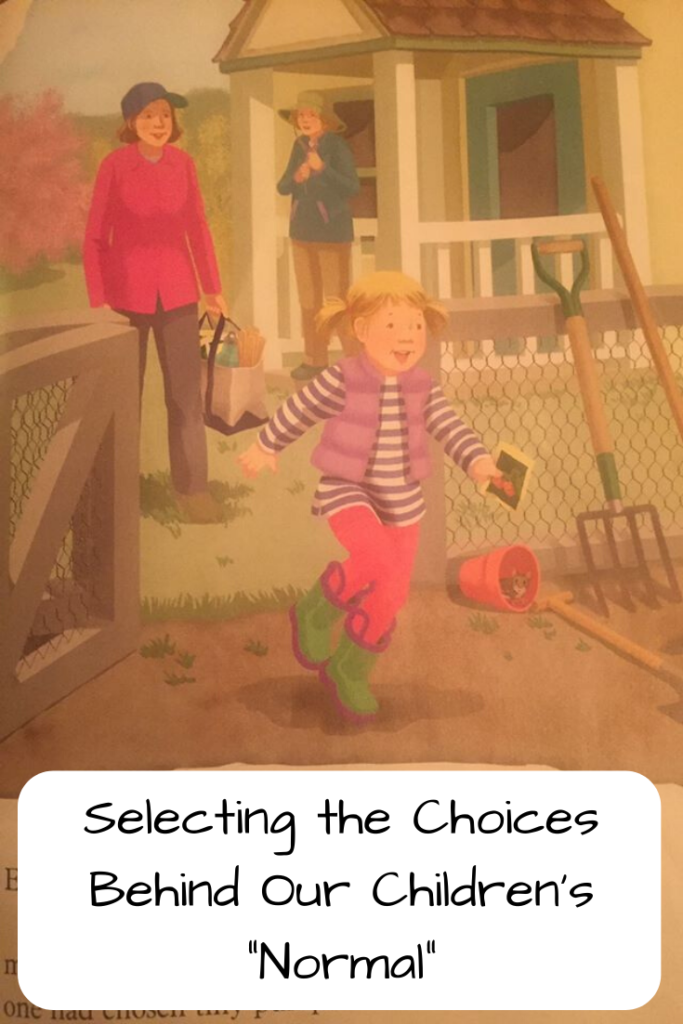
“You’re going to see [classmate] today. You should really use sunflower butter,” I say to my kids, who are making “peanut butter” and jelly sandwiches. My older son has a classmate who is severely allergic to nuts, so I’m being cautious.
“Sunflower butter!” my three year old exclaims, not being put off at all by the change in PB&J plans. When I was a kid, I wouldn’t have any idea what sunflower butter was, much less accept it out of hand. Yet, for them, switching is perfectly normal.
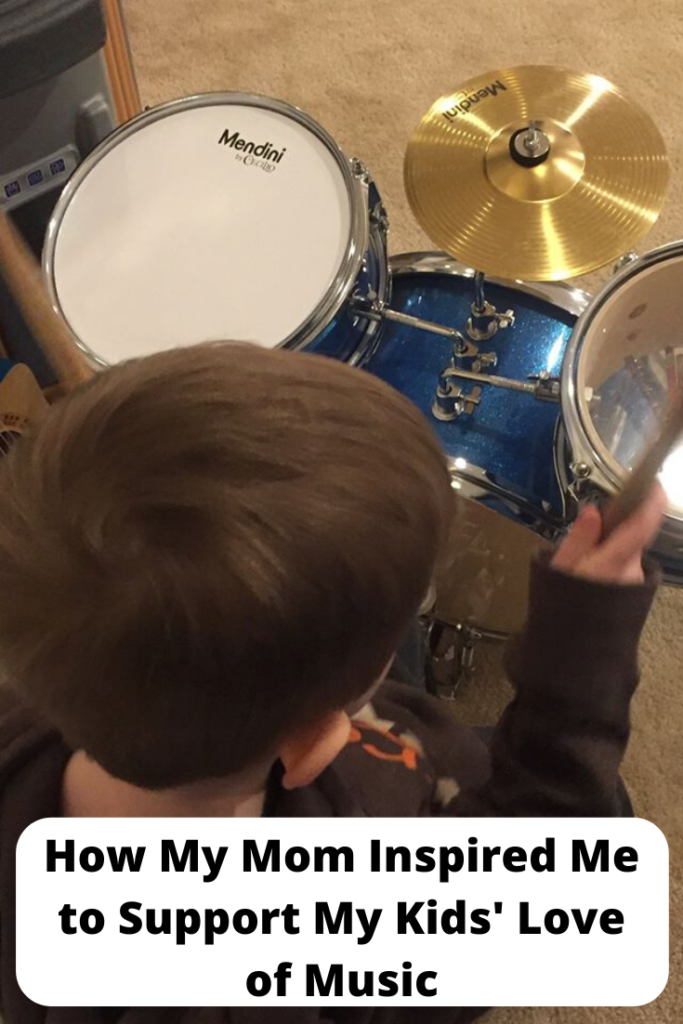
Honk! the saxophone squawked as I held it just inches from my face. I winced. My five year old blew into the mouthpiece again, but thankfully didn’t produce any sound this time around.
“You made a noise! That’s great!” I cheered.
I flashed back to when I first started playing the saxophone in fifth grade. I was much older than my kids are now, but I’m pretty sure my initial efforts weren’t any better. My mom talked me out of taking up trombone – I understand why now.
No matter how much I want the photo, I’m never going to make my kids sit on Santa’s lap.

“My kids are notorious for not wanting to take pictures with Santa,” I commented to the person waiting at the mall kiosk. She had just pointed out that we could have made reservations to see Santa instead of waiting in line. But there was no way I was having my mother-in-law pay $40 ahead of time for my two sons to then refuse to be in the picture.
I wasn’t exaggerating. The only photos we had of our kids with Santa were from when they were too young to care. They’re each less than a year old in their respective photos. But once they hit two? Nope, nada, absolutely not. They wouldn’t even go near him. At Sesame Place’s Christmas celebration, my then four-year-old wanted a photo with Elmo, but he was only posing with Santa. So my son planted himself solidly on the other side of Elmo, as far away from the big guy as possible.
But did I try to force them to do it anyway? Nope. I never tried to force them to sit on Santa’s lap. It’s for similar reasons I’ll never make them hug or kiss a relative – or anyone, really.
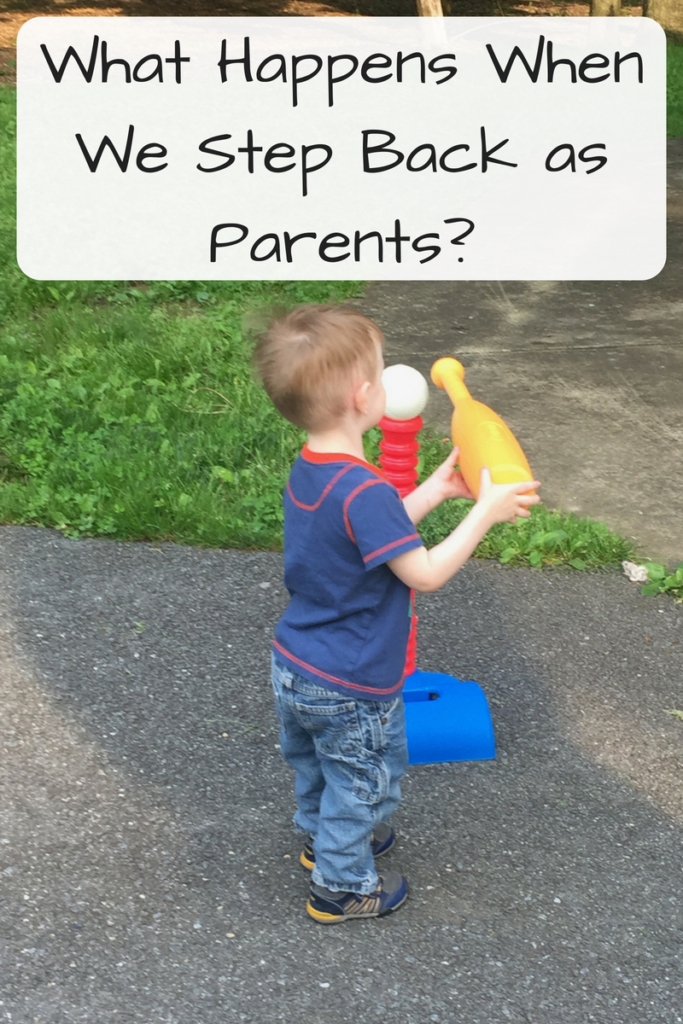
A white plastic ball. A red and blue t-ball stand. A a diminutive kid holding a large, yellow plastic bat.
Watching this scene play out at the playground with my two-year-old son, I tried not to interfere. After all, I thought, he should try it on his own. That is, until he started poking the ball with the narrow end of the bat. Poking it!
I walked over and tried to adjust his hands into the right position. “Look, you swing the bat!” I insisted.
And because my children are nothing of not their own people, he insisted right back.
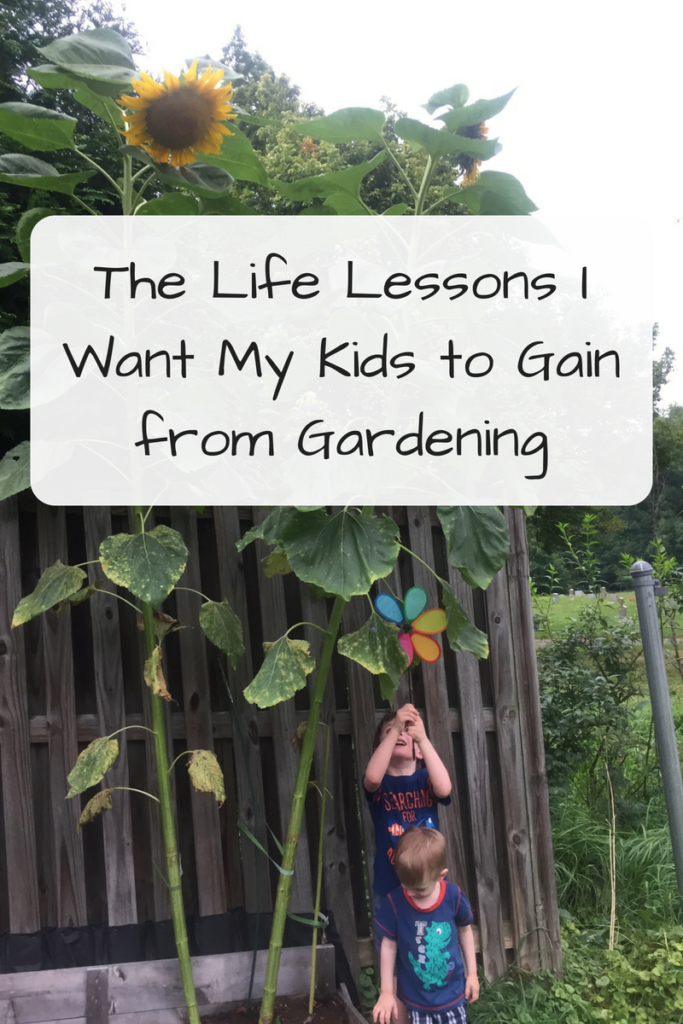
“Don’t walk – just stay there,” I told my two-year-old as he maneuvered around the wheelbarrow in our garden. Squish! His foot came right down on a squash vine. Oh well – there’s plenty more where that came from.
Even though my kids aren’t always gentle when it comes to my plants, they bring joy to my gardening. I think it benefits them too. Besides the health benefits, there’s a bunch of valuable life lessons I hope they pick up from our adventures in growing food.
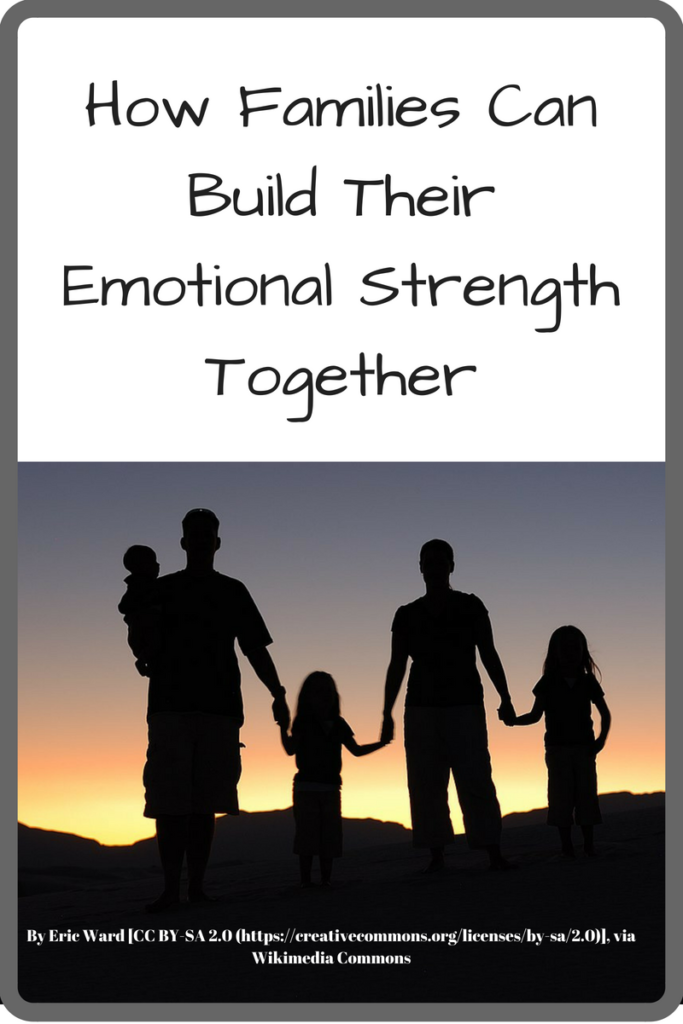
I try to read a scientific paper at work, but every few sentences, I’m drifting. My mind keeps jumping around, from checking my email to wondering if anyone liked my latest Facebook post to the latest political news. My body isn’t moving, but my mind feels like it’s running laps. Reading about physics is not happening. I turn off my computer screen, walk down the stairs of my building and cross the street into a public garden.
Once I get there, I walk slowly. I look intently at what’s around me, from the purple flowers to the tree branches arching over the path. Listening, I hear birds chattering, kids talking about their school assignment, the nearby car traffic. I feel the breeze on my face and the summer sun on my skin. My mind makes space for the sensory input and squeezes out the unending monologue.
Going back to my office, I start reading again, calmer and more able to focus.
While I use this technique to help myself, I’ve also found it’s effective for helping my almost five-year-old calm down. In fact, it’s one of the techniques that I’ve found work pretty well for both of us in developing emotional resilience:
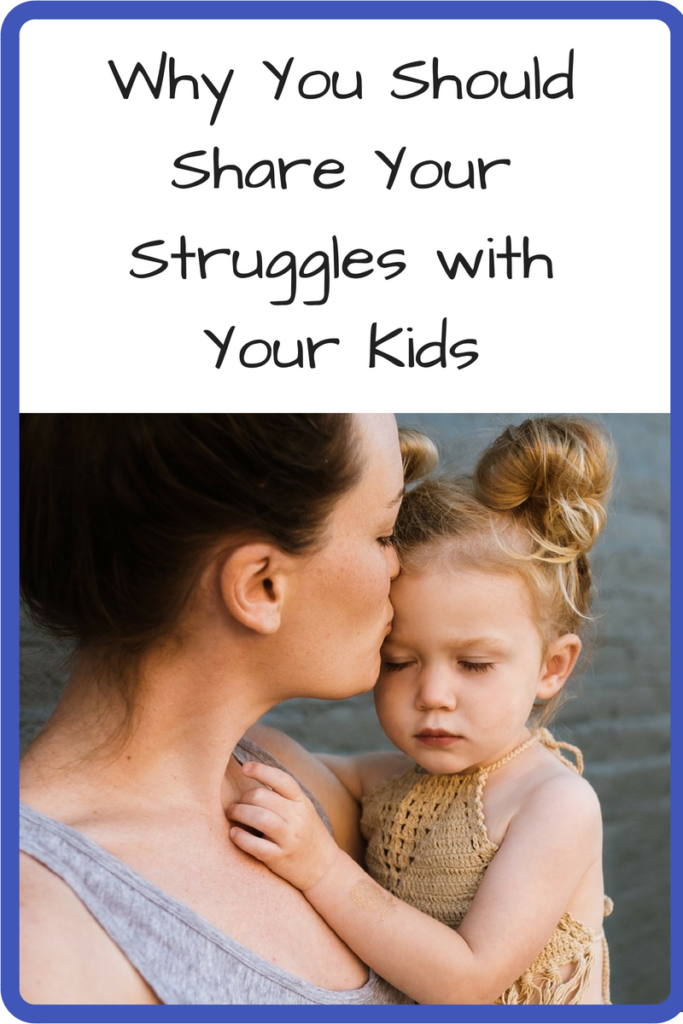
“Let’s remind each other to be positive and flexible this trip,” I told my four-year-old the day before going on vacation.
“What’s flexible mean?” he asked.
“Being willing to change plans. It’s something I’m working on. We both need to help each other out, okay?” I responded.
That’s neither the first or last time that I’ve told my kids about my own struggles. Some parents may feel like admitting to mistakes or challenges decreases their authority, but I think it actually does the opposite. We shouldn’t dump on our kids or reveal more than they can handle, but discussing issues at an age-appropriate level can be valuable. Thankfully, talking about this a little bit can go a long way.
Here are some of the benefits:
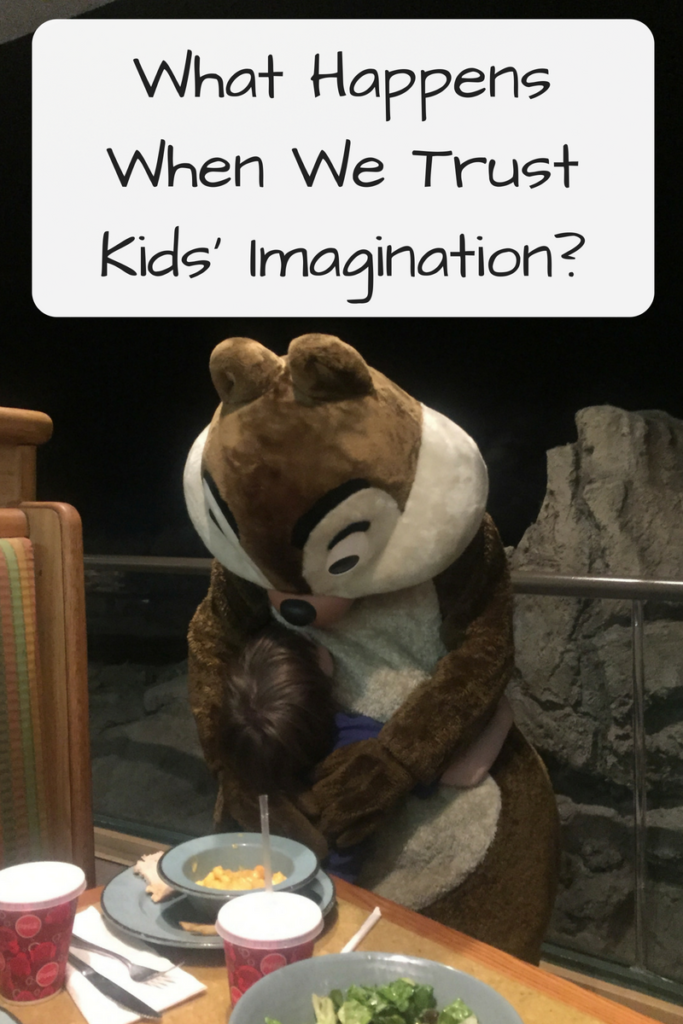
“They’re just people in costumes, right?” my four-year-old asked me about the Disney characters months before our trip to Walt Disney World. “Yep,” I answered, being truthful but not elaborating.
Yet despite knowing that, my son jumped up and down upon meeting them, hugging and high-fiving Chip, Dale, Pluto, and Mickey as they came to our table for a character lunch.
How did he manage that? I wondered. He knew they weren’t “real,” but his enthusiasm was genuine. I like “meeting” the characters too, but not with that level of joy. I’m always seeing layers down, wondering about who is in the costume or the logistics of it.
I think our responses reveal something important that most adults miss: kids can teach us so much about how to balance reality and imagination if only we let them.
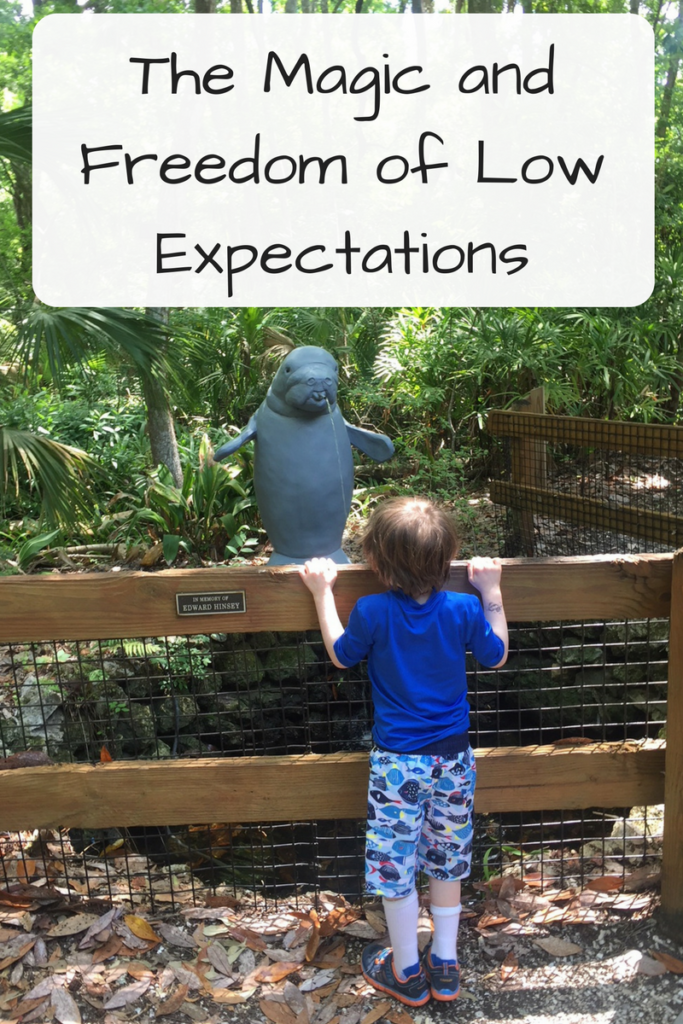
My younger son points urgently at the manatee stamp on his arm and then at the real creature in the water. “That’s right, a manatee!” I exclaim and smile. I watch it float, just letting the water hold its massive bulk like magic. “Geeze, they really aren’t very bright, are they?” I think. Then I shrug and think, “Eh, whatever.”
We’re at Homosassa Springs Wildlife Park, a state park in Florida that’s home to five resident manatees and a variety of other Florida animals. It’s also where I had a life-changing experience when I was 10.
As a nature-loving third grader, I fell hard for the manatees. They were so cute and so innocent! I found out they were endangered, convinced my class to adopt one, and became a lifelong environmental activist.
Except when I returned as an adult, Homosassa was not the same as I had remembered it. Disappointing is an understatement. I left with a bad taste in my mouth, my heart just a little broken.